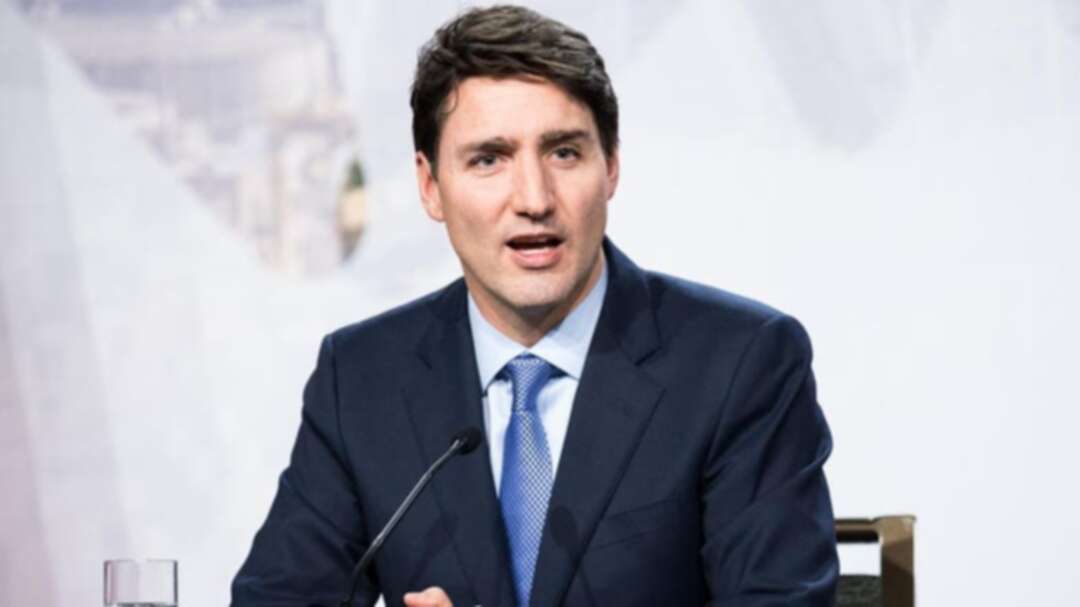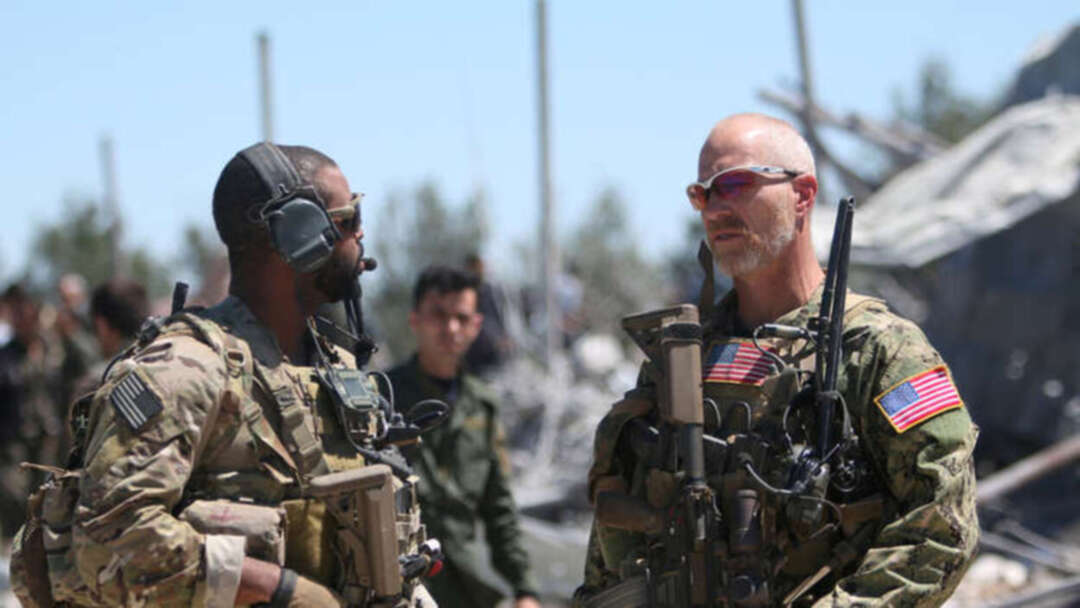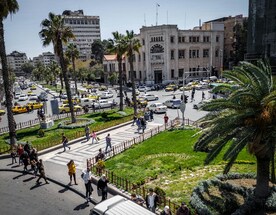-
Canada’s Trudeau to remain in power but with minority government

Canadian Prime Minister Justin Trudeau will remain in power but with a minority government that will require the support of a smaller left-leaning party, official results showed on Monday after a hard-fought battle in which he was dogged by scandals.
The Liberals had won or were leading in 156 out of 338 seats as of midnight EDT (0400 GMT on Tuesday), according to Elections Canada. That put the Liberals far short of the 170 seats needed for a second straight majority government.
US President Donald Trump congratulated Canadian Liberal prime minister early on Tuesday after the federal election put Trudeau back in power, though with a minority in parliament.
"Congratulations to Justin Trudeau on a wonderful and hard fought victory. Canada is well served," Trump said on Twitter. "I look forward to working with you toward the betterment of both of our countries!"
Trudeau, who took power in 2015 as a charismatic figure promising “sunny ways,” saw his popularity drop over old photos of him in blackface and his handling of a corporate corruption case. He will now have to rely on the New Democratic Party (NDP) to push through key legislation.
Although the NDP had a disappointing night, as the number of seats it was projected to win was down sharply from the 2015 election, the party could exercise significant influence over Trudeau’s next government.
“I think a Liberal government supported by the (NDP) is likely going to lean farther left,” said John Manley, a former Liberal finance minister who now works in the private sector.
“It raises a series of issues about what are the demands that an NDP party would make. What’s the price of governing going to be? And I think businesses are going to be reluctant to make any moves until they get some satisfaction around that.”
Minority governments in Canada rarely last more than 2-1/2 years.
Ahead of the vote, polls showed a neck-and-neck race between Trudeau and his main rival, Conservative leader Andrew Scheer. The Conservatives, who trailed on Monday with 121 seats, actually held slightly more than a 1-percentage-point lead in the popular vote over the Liberals.
Trudeau, 47, who has championed diversity as prime minister, was endorsed by former US President Barack Obama in the final stretch of the campaign and is viewed as one of the last remaining progressive leaders among the world’s major democracies.
But the son of the late Liberal Prime Minister Pierre Trudeau also had to overcome a sense of fatigue with his government.
The Bloc Quebecois saw its support jump in the mainly French-speaking province of Quebec, the only place where the separatist party contests elections. It was elected or ahead in 32 seats, more than three times what the party won in 2015.
“The Bloc Quebecois is surging in Quebec,” said Daniel Béland, director of the McGill Institute for the Study of Canada, who added that the election was a “clear defeat” for Scheer and the Conservatives.
The Greens, who have assailed Trudeau for not doing enough to combat climate change, also made gains on Monday.
Liberal Natural Resources Minister Amarjeet Sohi lost his seat in Alberta as did Public Safety Minister Ralph Goodale in neighboring Saskatchewan. Anger at Trudeau has mounted in those two provinces over federal environmental policies that the energy industry says will harm output.
The oil industry’s top lobbying group has blamed Trudeau’s policies for throttling investment in the sector, and some global energy companies have shed assets in the oil sands region of Alberta, the country’s main oil-producing province.
Canada’s economy, however, has been on a general upswing in 2019. The Canadian dollar has been the best-performing G10 currency this year, rising more than four percent against its US counterpart, as the economy added jobs at a robust pace and inflation stayed closed to the Bank of Canada’s two percent target.
The six-week official campaign period was a rough and meandering ride with dirty tactics on both sides.
The liberal image of Trudeau, whose father opened the country to mass immigration, took a severe blow when pictures emerged early in the campaign of him wearing blackface in the early 1990s and in 2001.
Trudeau had already been wrestling with the fallout from accusations he pressured his justice minister to help shield engineering firm SNC-Lavalin Group Inc from corruption charges. In August, a top watchdog said Trudeau breached ethics rules.
Scheer also proved to be a determined opponent, although his hopes for a major breakthrough were dashed.
Scheer, 40, promised to balance the federal budget and eliminate a “carbon tax” on fossil fuels. He was running his first campaign as party leader after winning a bitter leadership fight in 2017.
“The Tories made a fundamental mistake by being opposed to the carbon tax,” said Hugh Segal, who was chief of staff to former Conservative Prime Minister Brian Mulroney.
“I’ve often heard it said the worst mistake a party can make is to get sucked into its own low expectations of the population,” he said.
source:Reuters
You May Also Like
Popular Posts
Caricature
BENEFIT AGM approves 10%...
- March 27, 2025
BENEFIT, the Kingdom’s innovator and leading company in Fintech and electronic financial transactions service, held its Annual General Meeting (AGM) at the company’s headquarters in the Seef District.
During the meeting, shareholders approved all items listed on the agenda, including the ratification of the minutes of the previous AGM held on 26 March 2024. The session reviewed and approved the Board’s Annual Report on the company’s activities and financial performance for the fiscal year ended 31 December 2024, and the shareholders expressed their satisfaction with the company’s operational and financial results during the reporting period.
The meeting also reviewed the Independent External Auditor’s Report on the company’s consolidated financial statements for the year ended 31 December 2024. Subsequently, the shareholders approved the audited financial statements for the fiscal year. Based on the Board’s recommendation, the shareholders approved the distribution of a cash dividend equivalent to 10% of the paid-up share capital.
Furthermore, the shareholders endorsed the allocation of a total amount of BD 172,500 as remuneration to the members of the Board for the year ended 31 December 2024, subject to prior clearance by related authorities.
The extension of the current composition of the Board was approved, which includes ten members and one CBB observer, for a further six-month term, expiring in September 2025, pending no objection from the CBB.
The meeting reviewed and approved the Corporate Governance Report for 2024, which affirmed the company’s full compliance with the corporate governance directives issued by the CBB and other applicable regulatory frameworks. The AGM absolved the Board Members of liability for any of their actions during the year ending on 31st December 2024, in accordance with the Commercial Companies Law.
In alignment with regulatory requirements, the session approved the reappointment of Ernst & Young (EY) as the company’s External Auditors for the fiscal year 2025, covering both the parent company and its subsidiaries—Sinnad and Bahrain FinTech Bay. The Board was authorised to determine the external auditors’ professional fees, subject to approval from the CBB, and the meeting concluded with a discussion of any additional issues as per Article (207) of the Commercial Companies Law.
Speaking on the company’s performance, Mr. Mohamed Al Bastaki, Chairman BENEFIT , stated: “In terms of the financial results for 2024, I am pleased to say that the year gone by has also been proved to be a success in delivering tangible results. Growth rate for 2024 was 19 per cent. Revenue for the year was BD 17 M (US$ 45.3 Million) and net profit was 2 Million ($ 5.3 Million).
Mr. Al Bastaki also announced that the Board had formally adopted a new three-year strategic roadmap to commence in 2025. The strategy encompasses a phased international expansion, optimisation of internal operations, enhanced revenue diversification, long-term sustainability initiatives, and the advancement of innovation and digital transformation initiatives across all service lines.
“I extend my sincere appreciation to the CBB for its continued support of BENEFIT and its pivotal role in fostering a stable and progressive regulatory environment for the Kingdom’s banking and financial sector—an environment that has significantly reinforced Bahrain’s standing as a leading financial hub in the region,” said Mr. Al Bastaki. “I would also like to thank our partner banks and valued customers for their trust, and our shareholders for their ongoing encouragement. The achievements of 2024 set a strong precedent, and I am confident they will serve as a foundation for yet another successful and impactful year ahead.”
Chief Executive of BENEFIT; Mr. Abdulwahed AlJanahi commented, “The year 2024 represented another pivotal chapter in BENEFIT ’s evolution. We achieved substantial progress in advancing our digital strategy across multiple sectors, while reinforcing our long-term commitment to the development of Bahrain’s financial services and payments landscape. Throughout the year, we remained firmly aligned with our objective of delivering measurable value to our shareholders, strategic partners, and customers. At the same time, we continued to play an active role in enabling Bahrain’s digital economy by introducing innovative solutions and service enhancements that directly address market needs and future opportunities.”
Mr. AlJanahi affirmed that BENEFIT has successfully developed a robust and well-integrated payment network that connects individuals and businesses across Bahrain, accelerating the adoption of emerging technologies in the banking and financial services sector and reinforcing Bahrain’s position as a growing fintech hub, and added, “Our achievements of the past year reflect a long-term vision to establish a resilient electronic payment infrastructure that supports the Kingdom’s digital economy. Key developments in 2024 included the implementation of central authentication for open banking via BENEFIT Pay”
Mr. AlJanahi concluded by thanking the Board for its strategic direction, the company’s staff for their continued dedication, and the Central Bank of Bahrain, member banks, and shareholders for their valuable partnership and confidence in the company’s long-term vision.
opinion
Report
ads
Newsletter
Subscribe to our mailing list to get the new updates!






















